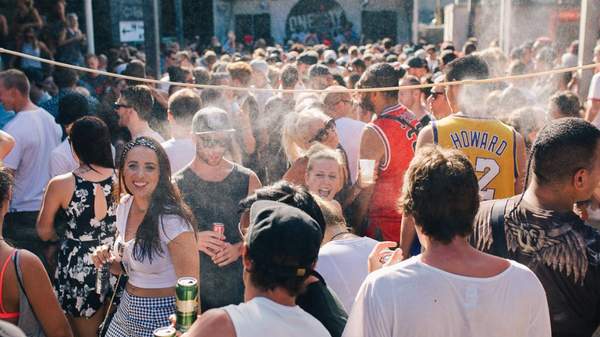Overview
In 1820, Charles Samuel Stewart referred to Australia as “a nation of drunkards and gamblers”. In 2015, it seems like our bloated state governments see this description as something we should aspire to.
In a nation that wastes $20 billion a year on gambling and the like, our out-of-touch baby boomer legislators decide instead to come after the musicians, creatives and events of the late night party scene. In spite of this targeted crusade, we feel like One Day Sundays has played a role the shift towards day parties, one that has come about in the wake of lockouts strangling many venues and club nights. In a sense, the lockouts have probably helped our parties, like One Day Only happening this Saturday, November 21, as they’re predominantly day parties (and finish before lockout).
But with the lockouts still steadfast in our city, it’s difficult to think of a less effective approach to the issues that the laws aim to address. The lockouts have been culturally and economically destructive and, as widely predicted, simply shifted the issues to a different late night area.
Newtown has seen an 18 percent increase of violence. Violent crime in the CBD has decreased by 24 percent since the lockouts — which on the surface sounds effective until you couple it with venues reporting a 25 percent decrease in gross revenue. Many nights and multiple venues have shut down due to a lack of patronage. In other words, there is less violence because there are less people around. Despite less people being out and about in the lockout zone of an evening, police have reported amphetamine use charges have increased by 33 percent. It doesn't add up.
Meaningful, lasting solutions to the very real problems of alcohol-fuelled violence are required if real change is to take place, but the lockouts were a largely political exercise; a knee-jerk reaction to moral panic that set in in the wake of a handful of tragic, unnecessary deaths.
As Sydneysiders who enjoy having a good time and believes individual responsibility should trump the nanny-state mentality when it comes to civil liberties, we think the lockouts are an embarrassment for a city that likes to consider itself world-class. When you think of progressive and innovative creative hubs, you think of places like Berlin with their late night culture and limited alcohol regulation, or London’s all-night rave scene that has birthed so many genres and trends. Australia is fair way off these places in this regard — but we are catching up quickly.
Through the 2000s, Australian club and live music culture really started to get an global identity, with acts like The Presets and Cut Copy exposing the world to the movement that was happening here at home. Modular was an internationally respected record label. Recently we have had acts like Flume/What So Not, Taku and Wave Racer emerging from local club land to cross the oceans, Future Classic and Laneway are international tastemakers, and increasingly Australia is looked to as an innovative and celebrated global player in the electronic music world.
Putting a leash on the events, artists, DJs and promoters where these scenes grow and flourish starves innovation and stifles creativity. It's an action that screams, "Stop what you’re doing and go home."
One Day Only is all about taking back control of the ability to enjoy one’s self from the various authorities who are utterly out of touch. In a practical sense, One Day Only picks up where One Day Sundays left off by giving the middle finger to the venue lockouts by starting the party earlier. We’re borrowing from the revolutionary themes of 18th century Europe as a means of expressing our frustration at being told when and where we can have a good time.
Despite it sometime seeming like it’s increasingly difficult to have a good time in Sydney in the wake of lockouts and countless venue closures, all hope is not lost.
By Nick Lupi and Raph of One Day.
One Day Only is happening on Saturday, November 21 at Manning Bar, University of Sydney. More details over here.
Images: One Day, Paul McCarthy (Wikimedia Commons), Felix Berlin.
